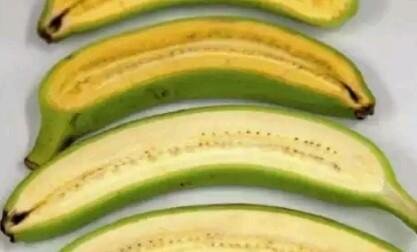
Researchers from Queensland University of Technology (QUT), Professor James Dale, have developed a golden orange-colored Fleshed banana, rich in vitamin A and can save the lives of thousands of children who die each year from vitamin deficiency.
Prof Dale, who led the study, said an estimated 650,000-700,000 children worldwide die each year and thousands more suffer from blindness due to lack of vitamin A.
This decade-long study has been published in the Plant Biotechnology Journal, involving extensive laboratory tests at QUT as well as field trials in North Queensland.
Professor Dale says that the process of genetic modification has resulted in the identification and selection of banana genes that can be used to increase pro vitamin A in bananas.
The study is supported by nearly $ 10 million or equivalent to Rp 134 billion from the Bill and Melinda Gates Foundation, which ultimately aims to increase the nutritional content of bananas in Uganda, where fruit is a staple food in their daily diet.
Professor Dale explains the development of biofortified bananas as a significant humanitarian project.
"East African bananas are an excellent source of starch, which are harvested green and then minced and steamed, but their micronutrient levels are low, especially vitamin A and iron," said Professor Dale, as quoted from page Food and Beverage , Tuesday (7/11/2017).
Professor Dale explained that the researchers took the gene from bananas originating from Papua New Guinea and were naturally very high in pro-vitamin A but had small bunches, and put them in Cavendish bananas.
"Over the years, we can develop bananas that have achieved very good pro-vitamin A levels, therefore the meat is golden in color than cream-colored flesh," he said.
He said the results of this study represent a major milestone for providing more nutritious food to the poorest subsistence communities in Africa.
"Our science works and this is the technology developed here at QUT," he explained.
He said they tried and tested hundreds of different genetic variations in the laboratory and in field trials in Queensland, they finally got the best results. The elite genes from bananas have been sent to Uganda using test tubes to be tested in Uganda.
Professor Dale says another really fun aspect of this project is the fact that young Ugandan students, who came to QUT for their studies, have now completed their PhD and oversee field research and trials in Uganda.
Follow upvote and resteem
@milfa
Nice post. keep it up.